Petaluma High School
Home of the Trojans
- Petaluma High School
- Counseling Services Home
-
Counseling Services
-
Counselors are divided by student's last names. Counselors are available for academic, personal/social issues, and post-secondary (college & career) planning. Please email your counselor if you have questions or would like to set up an appointment to meet. To contact the counseling secretary, please call 707-778-4779. Additionally, we have MFT interns on-site available for extra mental health support. If you are looking for support, you can complete the PHS Mental Health Self-Referral Form directly or email your counselor. Be sure to review our counseling FAQs as many of your questions can be found here!
Need to meet with your counselor? Fill out a request here (petk12 email addresses only)!
-
A-DE: Ms. McClelland, mmcclelland@petk12.org
-
DI-K: Mrs. Singh, asingh@petk12.org
-
L-P: Mrs. Emanuel, jemanuel@petk12.org (M-W) & Mr. Babala dbabala@petk12.org (Th-F)
-
Q-Z: Mrs. Guerra, mguerra@petk12.org
-
STAFF DIRECTORY
- Q-Z
| Showing results for "Professor named Smith at Elementary School" |
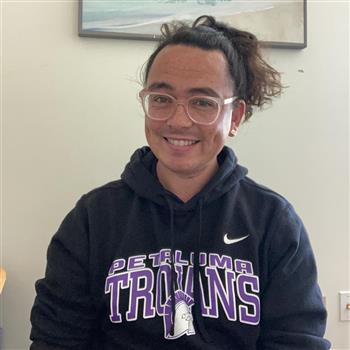
- Deegan Babala
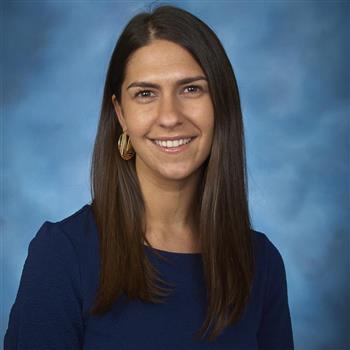
- Jenna Emanuel

- Molly Guerra

- Megan McClelland
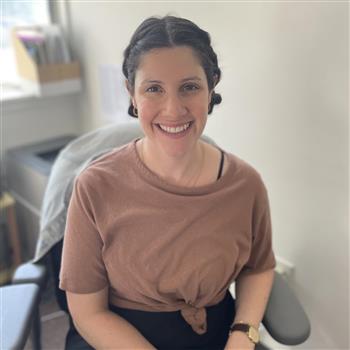
- Aliah Singh
- Counseling
- Counseling Office
| Showing results for "Professor named Smith at Elementary School" |
- Natalia Bardsley

- McCoy Dodsworth
- Nikki Jackson
- Lisa Manthe
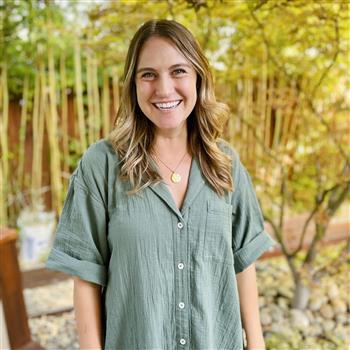
- Caitlin Severin
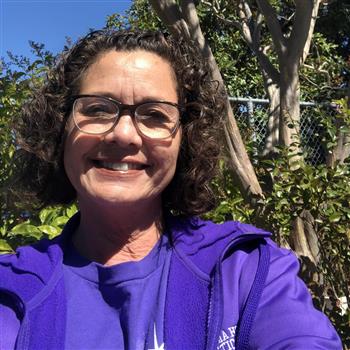
- Christine Stoll
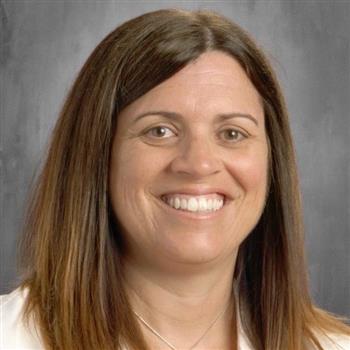
- Susie Taylor
- Drew Timme
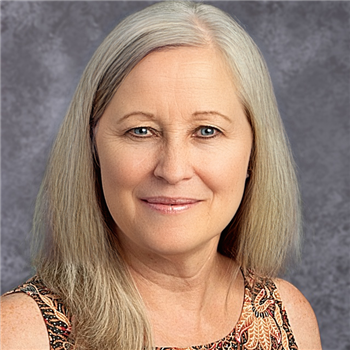
- Vivian Whetstone
IMPORTANT FORMS & PAST PRESENTATIONS
-
Schedules 2024-2025
If you wish to make a change to your 2024-2025 schedule, please complete this form. Schedule changes will be made based on the availability of courses and the master schedule. Schedules will be available for pickup at Trojan roll call on Friday, August 9th and Tuesday, August 13th. The first day of school is Wednesday, August 14th. If you are taking an AP/honors class, be sure to review the summer assignment, info available here.
-
Petaluma High School Counseling FAQs
Have a question? Before emailing your counselor, review the information below!
-
How do I meet with a counselor?
-
Students - come by before school, break or after school. If your counselor is not available, scan the QR code or send an email.
-
Parents - email or call to set up an appointment and have questions answered. And be sure to read our FAQs below to see if your question is on there!
-
-
How to change a class?
-
Students may request a change from one course to another through the first two weeks of school. Requests can be either approved or denied by school officials depending on circumstances. Year-long classes cannot be dropped during the semester. Additionally, AP and Honors classes are a year long commitment. Please review the AP commitment form.
-
-
How to drop a class?
-
Meet with your counselor to discuss options, classes dropped after 6 weeks will receive an automatic Withdraw “F” on a student’s transcript.
-
-
Repeating classes for Ds/Fs?
-
If a student receives a D or F in a college prep (A-G) course, that course can be repeated to earn a higher grade for college eligibility. Options can be in class, online, or through outside programs/schools. Keep in mind that credit can only be given for the repeated course. Talk with your counselor for more information.
-
-
Grading terms - progress grades versus semester grades.
-
Progress grades are given every six weeks and are used to determine academic eligibility for athletics and work permits. Colleges do not see progress grades and these grades do not earn students credits.
-
Semester grades are final and are posted on transcripts and are a part of a student’s permanent record.
-
-
How to take a SRJC class?
-
Learn more information here.
-
Please note that SRJC classes can be used for dual enrollment - meaning a student can earn both college and high school credits. A 1.5 unit class is equal to 5 high school credits. A 3 or 4 unit class is equal to 10 high school credits. Keep in mind that junior college classes go on a student’s permanent college record. Talk with your counselor about what classes are right for your student.
-
-
What are A-G requirements & college prep classes?
-
A-G requirements are the minimum requirements a student must meet to be eligible for a CSU or UC college. Students must receive grades of Cs or higher in all A-G coursework and it must be completed by a student’s senior year. College preparatory courses are designed for academically proficient students to prepare them for their post secondary education. For a current list of Petaluma High School’s approved A-G courses, visit the UC website.
-
-
Earning credits/grade level designation
-
Semester grades of A, B, C or D earn five credits. Grades of F do not award any credit and core courses must be repeated to earn credits. The following credits are recommended by the end of each school year:
-
Freshman: 60+ credits
-
Sophomore: 120+ credits
-
Junior: 160+ credits
-
Senior: 220 credits needed for graduation
-
-
-
How is GPA determined?
-
The GPA computation is based on a grading system of A = 4 points, B = 3 points, C = 2 points, D = 1 point, and F = 0 points. Advanced Placement (AP) and some Honors courses earn a grade bump, A = 5, B = 4, C = 3, D = 1. These courses are indicated with a + on the transcript. To calculate your GPA, add up your total number of points and divide by the number of classes you are enrolled in, for example:
-
3 As = 12 points
-
2 Bs = 3 points
-
1 C = 2 points
-
Total = 17/6 (2.83 GPA)
-
-
-
When and how can a student have an off period?
-
Students must be enrolled in a total of six classes during their 9th, 10th, and 11th grade year. In 12th grade, a student may have an off period if their credits are in good standing and must get permission from parent/guardian, counselor, and administrator. Seniors must be in at least five classes in the first semester, and at least four classes in the second semester.
-
-
What are AP & Honors classes?
-
Petaluma High School offers a wide variety of Advanced Placement and Honors courses. The courses are designed to help enrich a student’s learning experience and in the case of AP classes, gives the student a chance to earn college credits if they take (and pass) the AP exams given in the spring through the College Board. All AP classes receive a grade bump and certain Honors classes receive a grade bump as well. Students interested in taking multiple AP/Honors classes in the same school year are advised to talk with the teachers, parents, and their counselor on the rigor and time commitment of multiple courses as they are year long commitments. All students who meet course prerequisites shall have equal access to Advanced Placement courses.
-
-
How can I use a PE Waiver to be exempt from PE?
-
Starting with their sophomore year, students can waive a semester of PE (to be replaced with elective credits) for each season of a PHS sport that they play. In order to apply for a waiver:
-
Student athletes must have taken and passed physical education in grade 9 with a grade of “C” or better.
-
Student athletes must score in the “healthy fitness zone” in five of the six fitness areas tested in grade 9 as measured by the FITNESSGRAM.
-
Student athletes must maintain a minimum 2.0 GPA (Total GPA), for each grading period during the period of exemption.
-
The exempted physical education course must be replaced with another course, which cannot be an unscheduled (free) period, and student athletes must maintain a full class load, during the period of exemption. Students may only replace the exempted physical education course with Independent Work Experience (IWE) under special circumstances with administrative approval.
-
For each full season of sport completed in grades 10 and/or 11, student athletes will be exempted from physical education for one semester.
-
During the annual course registration window, or upon new enrollment, a student athlete must notify his/her counselor of his/her intent to apply for a Physical Education Exemption Based on Interscholastic Athletic Program Participation, so that the student athlete is scheduled appropriately.
-
At the conclusion of each season of sport the student athlete must complete this application, which has been signed by the student athlete, and his/her parent/guardian. The athletic director will confirm completion of the season of sport and sign the application. Completed forms should be turned into the athletic secretary for review.
-
-
-
Athletics
-
Students that want to participate in athletics at PHS must complete medical clearance and must maintain a 2.0 GPA.
-
-
NCAA
-
Students considering participation in NCAA college level sports need to register with the NCAA clearinghouse to establish eligibility. It is recommended that they start this by the end of their sophomore year. For more information visit: https://web3.ncaa.org/ecwr3/
-
-
CAASPP/EAP:
-
The California Assessment of Student Performance and Progress (CAASPP) System will have a direct impact on the California State University's (CSU) Early Assessment Program (EAP).
-
The CAASPP test is used by community colleges and the CSU to determine readiness for college level coursework. Students who do well on the CAASPP can avoid taking placement exams.
-
The EAP was developed by the CSU in collaboration with the California Department of Education (CDE) and the State Board of Education and is accepted by participating CCC campuses as well as the CSU. All grade eleven students who participate in the English and mathematics CAASPP examination will achieve a performance level that will be used for the EAP.
-
All students who are identified at achievement level 4 in English or Math are ready for college level work and can register in college bearing courses upon entering a CSU or California Community College.
-
All students who are identified at achievement level 3 in English or Math are conditionally ready for college level work and will need to take an approved English class (ERWC, AP English 12 or outside college course) or Math class (Math Analysis Honors, AP Statistics, or AP Calculus) to be exempt from placement testing after admission to CSU. Upon completion of these courses with a “C” or higher, students can enroll in college level courses at CSU or CCC.
-
-
AP Testing
-
AP Tests are administered every spring through the College Board. If a student earns a 3 or higher on an AP exam, they can use those scores towards college credits. Please visit the website for specifics on tests and schools: https://apstudent.collegeboard.org/creditandplacement/search-credit-policies
-
-
Should my student complete a four year plan?
-
Counselors are available to meet with students to develop their four year plans. These documents are made on Google documents, so students have the opportunity to revise and revisit them. It is recommended to review them each year during the course registration timeline (January-February).
-
-
What are the PHS graduation requirements?
-
English - 40 credits/4 years
-
Social Studies - 30 credits/3 years (World History, US History, and Gov/Econ)
-
Math - 20 credits/2 years (must pass Math 1)
-
Science - 20 credits/2 years (10 credits of each; 1 Physical & 1 Biological)
-
Math/Science Related - 10 credits/1 year (additional Math or Science class or a Math/Sci related class)
-
Physical Education - 20 credits/2 years (PE 9 must be taken in 9th grade)
-
Foreign Lang/VPA/CTE - 10 credits/1year
-
Human Interaction - 5 credits/1 semester (pairs with Intro to Business, taken in 9th grade)
-
Electives - 65 credits
-
TOTAL = 220 CREDITS
-
Fs = 0 credits
-
1 semester = 5 credits & 1 year = 10 credits
-
-
What are the A-G Requirements?
-
These are the requirements for admission to CSU and UC schools. These are the minimum requirements for students to be eligible for schools in the CSU and UC system. Please note that it is recommended to go above and beyond. Ds and Fs are not accepted.
-
History/Social Science - 2 years required
-
English – 4 years required
-
Mathematics – 3 years required, 4 years recommended (minimum through Math 3)
-
Laboratory Science – 2 years required, 3 years recommended (1 Physical, 1 Biological)
-
Language Other than English – 2 years required, 3 years recommended (must be same language)
-
Visual & Performing Arts – 1 year required
-
College Prep Elective – 1 year required
-
-
-
What is the Petaluma High School code?
-
052460
-
-
Financial Aid
-
All seniors are required to apply for financial aid through FAFSA or CA Dream Act (undocumented students) for scholarships, grants, work study, and loans. PHS offers a financial aid night every year for students and their families. 10,000 Degrees and the College & Career center also offer additional support.
-
-
Transcripts
-
Can be requested online via parchment online.
-
-
What is the NHS?
-
The National Honor Society (NHS) is the nation's premier organization established to recognize outstanding high school students. More than just an honor roll, NHS serves to recognize those students who have demonstrated excellence in the areas of scholarship, leadership, service, and character. Membership is based on the previous semester’s grades and discipline record. Membership is for one semester only. You must reapply each semester!
-
How do I become a member?
-
To join National Honor society at Petaluma High School you must meet the following criteria:
-
-
Have a GPA of 3.0 for the semester.
-
Have no suspensions or discipline contracts active during the semester.
-
Be prepared to complete 10 hours of community service during the upcoming semester.
-
-
What is CSF?
-
Students can start applying to be a member of CSF in their sophomore year. Previous semester grades determine membership. Applications must be completed in the first 4 weeks of each semester.
-
The California Scholarship Federation (CSF) is a state-wide organization that honors outstanding high school students. The purposes of CSF are to foster a high standard of scholarship and to give recognition to academic excellence. Membership is based on the previous semester’s grades in specific required courses. Membership is for one semester only. You must reapply each semester!
-
Life membership (seal bearer status) is awarded to students who have qualified and joined CSF for 4 semesters during the 10th -12th grades, including one semester in the senior year. At graduation, life members receive an honorary gold cord, CSF pin, CSF certificate, & the CSF seal on their diploma with recognition on their transcript. 100% members must have qualified and become a CSF member for all six semesters during grades 10-12. In addition to the seal bearer awards, 100% members receive a gold tassel to wear at graduation.
-
How do I become a member? To qualify, the student must have at least 10 points, A’s counting 3 points, B’s one point, and C’s no points. (A’s & B’s in honor classes receive 1 extra point – 2 points maximum). D’s and F’s disqualify a student from membership. There is a list of qualifying classes on the back of the application form. PE or IWE grades do not count. Second semester freshmen and first semester sophomores may become Associate Members with full membership privileges, but this membership does not count towards the awards.
-
Alternative High Schools:
-
If a student finds that PHS is not the right fit for them, they should meet with their counselor to discuss options. In Petaluma City Schools, alternative high schools are: Carpe Diem HS, Sonoma Mountain HS, Valley Oaks HS, and San Antonio HS. Once a student discusses with their counselor and their parents, the student should make an appointment to meet with the principal of that high school. Transition meetings where transfers are approved or denied happen once a month.
-
-
Community Service:
-
Eight (8) hours of community service are required for freshmen taking human interaction. Students that complete 100+ hours of community service in high school will be recognized at graduation. See college and career center for more information.
-
-
Work Permits:
-
All students under age 18 must have a valid work permit to be employed (including vacations and summer break). Students must maintain a 2.0 GPA. Work permits are issued for one year and expire every August. Work permits may be revoked at any time if attendance and graduation requirements are not being met.
-
-
Golden State Seal Merit:
-
To be eligible to receive the Golden State Seal Merit Diploma upon graduation, students shall complete all requirements for a high school diploma and shall demonstrate a mastery of at least six subject areas, four of which shall be mathematics, English language arts, science and United States history, with the remaining two subject areas selected by the student.
-
-
California State Seal of Biliteracy
-
The State Seal of Biliteracy will be awarded to graduating seniors from Petaluma High School who have mastered standard academic English and another language.
-
Complete high school graduation requirements, including English language arts requirements, with an overall grade point average (GPA) of 2.0 or above in those classes.
-
Pass the California Assessment of Student Performance and Progress (CAASPP) in English language arts administered in grade 11 at the proficient level or above.
-
Demonstrate proficiency in one or more languages other than English (includes American Sign Language) through one of the following methods:
-
Pass a world language Advanced Placement examination with a score of 3 or higher.
-
Complete a four year high school course of study in a world language and attain an overall grade point average of 3.0 or above in that course of study, and oral proficiency in the language comparable to that required to pass an AP examination.
-
Pass the SAT II foreign language examination with a score of 600 or higher.
-
-
How do I get my child assessed for a learning disability?
-
This process begins with a Student Study Team (SST) meeting to discuss concerns and identify strategies for success. Your student’s counselor will coordinate the meeting, which will include the parent/guardian, student, teachers, and at times, an administrator. A plan will be put into place and reviewed after 6 weeks. If the identified strategies are not helping and there are still concerns, the School Psychologist will look into whether a Special Education Evaluation is the appropriate next step.
-
-
Difference Between a 504 plan and IEP?
-
504 Plan: is for a student with a documented disabling condition which impacts their access to education. A meeting is held to determine eligibility and develop specific accommodations to support your student in the classroom.
-
IEP: An Individualized Education Plan is for students with demonstrated learning differences. Qualification for an IEP is determined after a student is assessed in multiple domains by a school psychologist and resource specialist teacher. Students who qualify receive extra support for their learning difference, which includes a period of study skills (elective) and a case manager, who oversees their IEP and progress. It could also include additional services such as speech & language support, classes with specialized instruction, mental health services, and a behavior plan.
-
-
-
A-G Requirements (4 Year Colleges)
College entrance requirements for the California State University (CSU) system, the University of California (UC) system, or independent colleges are more extensive than graduation requirements. Students should be following the A-G requirements if their goal is 4 year college after high school.
To meet minimum admission requirements, you must complete 15 yearlong high school courses with a letter grade of C or better — at least 11 of them prior to your last year of high school.
Keep in mind that taking approved high school (A-G) courses isn't the only way to satisfy these requirements. You also may meet them by completing college courses or earning certain scores on various acceptable exams.
- History/Social Science (2 years required)
- English (4 years required)
- Math (3 years required, through Math 3)
- Science (2 years required)
- Language other than English (2 years required)
- Visual & Performing Arts (1 year required)
- College Prep Elective (1 year required)
Going above & beyond in categories can increase the chance of acceptance, especially at highly competitive colleges.
PHS Approved A-G Courses can be found here.
-
Santa Rosa Junior College Information
SRJC Dual Enrolled HS Students
If you are planning to take a SRJC class, please review the information below and make sure you complete ALL steps.
Steps to enroll in a SRJC Class:
- Apply to open CCC AND SRJC and get Student ID# (9 digits) - you must reapply EVERY term: https://admissions.santarosa.edu/high-school-dual-enrollment-students
- Look at online schedule: https://classes.santarosa.edu/
- Check for any prerequisites/assessments: https://assessment.santarosa.edu/
- If you are trying to challenge a class that has a prerequisite, you need to complete this form: https://admissions.santarosa.edu/prerequisite-equivalency-form
- Complete dual enrollment form
- High School Dual Enrollment Online Request Form
- Turn form into SRJC Admissions & Records BEFORE you can register
- Register online during priority registration
- Email counselor proof of registration so we can adjust your schedule here if needed (remember OFF PERIODS ARE NOT GUARANTEED!)
Getting Assistance
If students have questions about completing or submitting the form, please have them get in touch directly with the liaison for your school.
What If There’s a Problem with a Submitted Form?
For troubleshooting issues related to submitting the online High School Dual Enrollment Request Form, email: admissions@santarosa.edu.
Phone Hotline for Enrollment Help – 707-521-7844
Please refer students to their Student Outreach liaison to schedule their personalized support appointment. We know that it takes a village to help students do everything they need to do to get on board at SRJC. We want to help! SRJC Student Outreach liaisons will provide one-on-one personalized support to all high school students to assist them with their application and enrollment steps all semester long. Students may make appointments with their liaison directly via email or counselors may send a list of students who need assistance to their liaison and we’ll reach out to them.
-
PE Waiver Information, Board Policy AR 6142.7
PE Waivers MUST be turned in during the conclusion of the sport season.
Qualifications:
- Student-athletes must have taken and passed physical education in grade 9 with a grade of “C” or better.
- Student-athletes must score in the “healthy fitness zone” in five of the six fitness areas tested in grade 9 as measured by the FITNESSGRAM.
- Student-athletes must maintain a minimum 2.0 GPA (Total GPA), for each grading period during the period of exemption.
- The exempted physical education course must be replaced with another course, which cannot be an unscheduled (free) period, and student-athletes must maintain a full class load, during the period of exemption.
- For each full season of sport completed in grades 10 and/or 11, student-athletes will be exempted from physical education for one semester.
- During the annual course registration window, or upon new enrollment, a student-athlete must notify his/her counselor of his/her intent to apply for a Physical Education Exemption Based on Interscholastic Athletic Program Participation, so that the student-athlete is scheduled appropriately.
- At the conclusion of each season of sport, the student-athlete must complete a Physical Education Exemption Application, which has been signed by the student-athlete, parent/guardian, and counselor. The athletic director will confirm completion of the season of sport and sign the application.
- Students who do not fulfill the requirements of this exemption by the start of grade 12, and have not satisfied the physical education graduation requirements, will need to earn their remaining physical education credits required for graduation.
-
College Planning: Tips & Important Information
GET ORGANIZED!
- Create a separate, professional (yourname@domain.com) email to use for all applications.
- When sending applications and scholarship information through the Post Office, purchase a ‘proof of mailing’ certificate.
- Keep a copy of every college and application that you submit, and keep them organized!
- Gather all important materials - transcripts, resume/list of activities including all community service, start thinking about who will write your letters of recommendation (private schools only)
- Plan a visit to the College and Career Center! There is a variety of information and support available to seniors.
- Visit California Colleges & College Board's BigFuture page for helpful planning tools, testing information, researching college, application calendars and much more!
Write your personal essay EARLY!
Students applying to the University of California system and to private colleges and universities will be required to submit a personal essay. Take your time to do this well! Write your first draft, have someone whose writing ability you admire review your work….then update and re-write!
California Community Colleges are a great place to start your post-secondary studies.
- Certification programs for careers (example: mechanics, computers, phlebotomy)
- Associate of Arts Degrees (two year college degrees with a major area of study)
- Transfer to a four-year university (take freshman and sophomore general education requirements then transfer to a four-year university for completion of a Bachelor’s Degree.)
- The SRJC Jumpstart program will help all students that plan to attend SRJC after high school. This will start in the fall of senior year!
-
Financial Aid
Financial Aid Info
Here is the presentation from Financial Aid Night 2021, presented by Margaret Mann at SRJC.
Here is the presentation from 10,000 Degrees from Financial Aid Week 2021.
Western Undergraduate Exchange (WUE)
- Get discounted tuition out of state (certain majors)
- Learn more on the Western Interstate Commission for Higher Education (WICHE) website.
FAFSA & the California Dream Act (AB 130 & AB131) October 1, 2021 - March 2, 2022
- FAFSA: Online applications should be completed for the 2022-2023 freshman college year. FAFSA is the umbrella application required for almost all federal, state, institutional and private grants/scholarships. We recommend that you fill out this application regardless of your financial need.
- California Dream Act: Students who don’t qualify for financial aid under FAFSA may qualify under the California Dream Act. Qualifications to apply are:
- Student must have attended a CA high school for a minimum of 3 years
- Graduate from a CA high school, pass the CAHSEE or receive a GED
- Enroll in an accredited and qualified CA college or university
- If applicable, fill out an affidavit to legalize immigration status as soon as eligible.
-
UC & CSU Application Filing Periods
- California State University
- October 1 – November 30, 2022 for Fall 2023 Admissions
- University of California
- October 1 – November 30, 2022 for Fall 2023 Admissions
- For private universities check the individual application dates, deadlines, and enrollment requirements.
- California State University
-
College Tips:
- Create a separate, professional (yourname@domain.com) email to use for all applications.
- When sending applications and scholarship information through the Post Office, purchase a ‘proof of mailing’ certificate.
- Keep a copy of every college and application that you submit, and keep them organized!
- Gather all important materials - transcripts, resume/list of activities including all community service, start thinking about who will write your letters of recommendation (private schools only)
- Plan a visit to the College and Career Center! There is a variety of information and support available to seniors.
- Visit https://www.californiacolleges.edu/#/ & https://bigfuture.collegeboard.org/ for helpful planning tools, testing information, researching college, application calendars and much more!
UC & CSU Application Filing Periods:
- California State University: https://www2.calstate.edu/apply
- October 1 – November 30 for Fall Admissions
- University of California: http://www.universityofcalifornia.edu/admissions
- October 1 – November 30 for Fall Admissions
- For private universities: check the individual application dates, deadlines and enrollment requirements
- Early Decision/Early Action - usually October 1st
- Regular Admission - will vary by school
SAT & ACT (PHS SCHOOL CODE: 052460)
- Many schools have gone to test optional, including CSU and UC schools.
- Private Universities: check the individual testing requirements that are recommended for each school/major.
- You are in charge of sending your test scores directly to the schools you apply to!
- SAT Reasoning & SAT Subject Area: http://collegeboard.com
- ACT Examination: www.actstudent.org
Write your personal essay EARLY!
- Students applying to the University of California system and most private colleges and universities will be required to submit a personal essay. Take your time to do this well! Write your first draft, have someone whose writing ability you admire review your work…. Then update and re-write!
- UCs require you to respond to 4 of the 8 personal insight questions
- CSUs do not require essays.
Western Undergraduate Exchange (WUE)
- Get discounted tuition out of state (certain majors)
- Learn more here: https://www.wiche.edu/tuition-savings/wue/
California Community Colleges are a great place to start your post-secondary studies.
- Certification programs for careers (example: mechanics, computers, phlebotomy)
- Associate of Arts Degrees (two year college degrees with a major area of study)
- Transfer to a four-year university (take freshman and sophomore general education requirements, then transfer to a four-year university for completion of a Bachelor’s Degree.)
- SRJC Jumpstart Program will help all students that plan to attend SRJC after high school.
FAFSA & California Dream Act (AB 130 & AB131) December 1st-June 30th.
- Online applications should be completed for the 2024-2025 first-year student college year. FAFSA is the umbrella application required for almost all federal, state, institutional and private grants/scholarships. We recommend that you fill out this application regardless of your financial needs.
- Students who don’t qualify for financial aid under FAFSA may qualify under the California Dream Act. Qualifications to apply are: 1. a student must have attended a CA high school for a minimum of 3 years, 2. graduate from a CA high school, pass the CAHSEE or receive a GED, 3.enroll in an accredited and qualified CA college or university and 4. if applicable, fill out an affidavit to legalize immigration status as soon as eligible.
Websites for College Planning:
Listing colleges with programs for students with learning disabilities/differences
Find your college- Search by major, location, size etc
Search Engine- Find a College for Me
My Big Future - search for colleges, majors, and careers!

